Do you have badge fatigue? Eating healthy isn’t always as simple as it should be — the copious, myriad labels while grocery shopping can make it hard to know what you’re really buying. That’s why we’re breaking down the most important badges and what they actually mean, so you can find the purest food that’s best for you, your family and the planet.
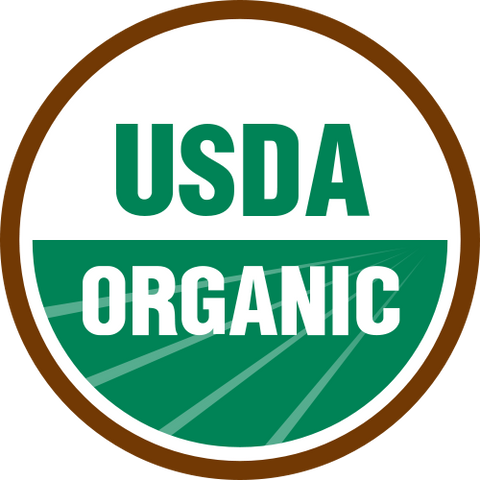
WHAT IS ORGANIC & WHY DOES IT MATTER?
- In essence, organic products are grown without synthetic chemical additives in pesticides and fertilizers, antibiotics and genetically modified organisms (GMOs).
- Since 2001, the US Department of Agriculture (USDA) has regulated the ways the term ‘organic’ can be used, meaning that anything with an organic label goes through an extensive certification process.
- For this reason, organic food is grown using farming practices that preserve, protect and sustain the natural environment. Unlike conventional farms that rely on unsustainable inputs like synthetic fertilizers and pesticides, organic farms strive to improve the natural environment with every season.
- Important to note: While organic farming far surpasses conventional methods for sustainability, many people feel that the term isn’t regulated enough to be meaningful. Many organic farms rely on chemical pesticides like Bt and other measures that compromise the long-term sustainability of their land, meaning that unless you know exactly how your food was grown, choosing organic isn’t a foolproof way to get pure food. That’s why there’s Biodynamic! (Stay tuned for more)
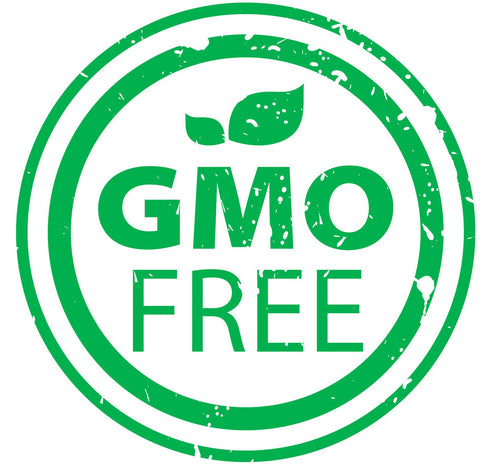
WHAT IS NON-GMO & WHY DOES IT MATTER?
- Though the term “Non-GMO” has exploded in popularity in recent years, few people know what it really means. Put simply, a genetically modified organism (GMO) is an organism that has been altered through genetic engineering. Through DNA technology, scientists can take the traits of one species (like pesticide resistance) and add it to a crop to increase its productivity in farm fields.
- While the rise of genetic engineering has created crop species that can withstand droughts, pests, and other challenges, there has been an intense backlash against their use. Many people believe that the research on the long-term impacts of GMO food is incomplete and that they contribute to health problems like allergies. For this reason, ‘non-GMO’ is a popular advertising term for health food today.
- Important to note: “Non-GMO” is unregulated because the FDA doesn’t have set standards about what it entails, meaning that some foods labeled “non-GMO” actually contain GMO ingredients. The non-profit Non-GMO Project offers independent verification of testing and GMO controls for products in the U.S. and Canada. The seal on a product implies that the product has been produced according to rigorous best practices for GMO avoidance, including testing of risk ingredients.
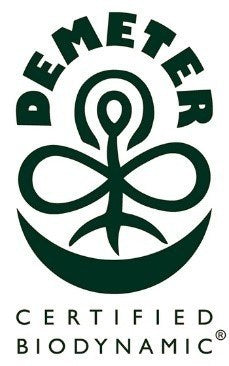
WHAT IS BIODYNAMIC AND WHY DOES IT MATTER?
- Biodynamic farming and its internationally recognized certifier, Demeter, is the oldest “green” farming movement and certification in the world. Organic farming as we know it comes from the original biodynamic teachings almost 100 years ago in Europe. The Demeter certification has been around since 1928 and is Europe’s organic certification of choice.
- Coming from the Greek words for “life” and “force”, biodynamic agriculture is a holistic and ecological method of regenerative agriculture that goes beyond organic and non-GMO requirements. By treating farms like living organisms, biodynamic farms work with nature, rather than against it, to grow food and raise livestock in a conscious and respectful manner.
- Biodynamic farming requirements aim to heal the farm while growing nutrient rich fruits and vegetables. Organic agriculture can be industrialized, while biodynamic farms cannot. Biodynamic farmers work with as few inputs as possible, creating a holistic, self-sustaining system. Biodynamic farmers take into account the ecological, social, and economic sustainability of farming practices. Read more about the difference between organic & biodynamic here.
- Demeter International is the predominant form of certification for biodynamic farms today, and certification includes stringent requirements. To qualify, farms must have 10 percent of their acreage set aside as a biodiversity preserve, diversity in their crop rotations, and a two-year limit on annual plantings in the same field. All biodynamic certified food is completely organic and non-GMO, meaning that it’s grown only in ways that improve the natural world. Read all about the tenants of biodynamics and regenerative farming here.
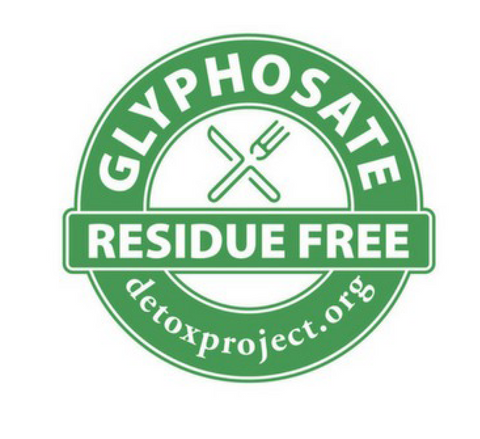
WHAT IS GLYPHOSATE-FREE & WHY DOES IT MATTER?
- Glyphosate is a broad-spectrum herbicide commonly known as 'Roundup." The active component is phosphate, which works as a desiccant to kill plants. It is known as a "knock-down" herbicide and is especially effective against broadleaf weeds and grasses
- Americans have applied more than 1.8 million tons of glyphosate since 1974 and it is the most widely-used pesticide/herbicide worldwide.
- Studies have linked glyphosate with many human and environmental health problems. It is linked with an increased risk of cancer in numerous studies. In 2015 the World Health Organization classified it as "possibly carcinogenic to humans." Glyphosate is also a known endocrine disruptor, and research has linked it to liver disease, birth defectives, reproductive problems and damaging DNA in human embryos. The best way to avoid eating glyphosate is, of course, not to eat crops that have been sprayed with it at some point during the growing cycle!
- Important to Note: Labels, however, can be confusing. For instance, a non-GMO crop (like oats) may still be sprayed with glyphosate if it was used as a crop desiccant as the oats reached maturity. Other than growing your food yourself, or purchasing directly from a farmer you trust, the best way to avoid glyphosate in your diet is by purchasing foods certified as Biodynamic or the soon-to-be-released Regenerative Organic. Learn more about all things Glyphosate here.
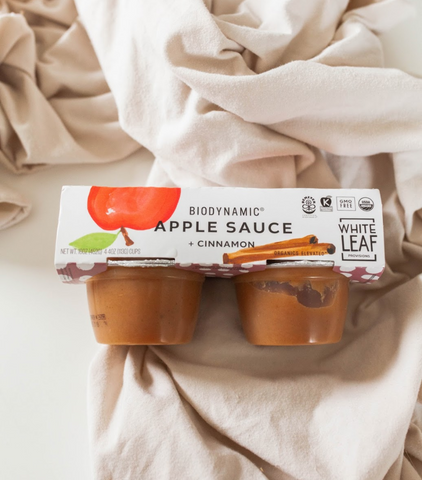
WHAT IS GLUTEN-FREE AND WHY DOES IT MATTER?
- Gluten is the general name for the proteins found in wheat, rye, barley and triticale, which is a cross between wheat and rye. Gluten helps foods maintain their shape, acting as a glue that holds food together, and can be found in many types of foods.
- Foods that are labeled gluten-free, according to the Food and Drug Administration rules, must have fewer than 20 parts per million of gluten.
- A gluten-free diet mainly helps manage symptoms of celiac disease, an autoimmune disorder, and other medical conditions associated with gluten.
- Important to Note: Switching from large amounts of breads, pastas and refined flours to incorporating more fruits, vegetables and other healthful gluten-free foods would likely result in a healthier diet. However, except for people who have celiac disease, gluten sensitivity, or other gluten-related disorders, a gluten-free diet is not necessarily the better choice.
- This is because many foods labeled as “gluten free” are highly processed and therefore lower in fiber, vitamins, and minerals than those with gluten. And, in order for some gluten-free foods to have texture and taste, they may have more fat and sugar added. Friendly reminder to always check the nutritional value before purchasing, based on the badge!


